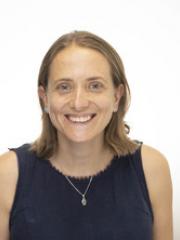Dr Sonia Brownsett

Researcher biography
Dr. Brownsett is a Speech Pathologist and neuroscientist. Trained initially in the UK as a Speech and Language Therapist, she advanced her expertise with a PhD in Clinical Neuroscience from Imperial College, London. Her doctoral research, employing functional brain imaging (fMRI), provided critical insights into the interaction between domain-general and language-specific brain networks, particularly in healthy older adults and individuals recovering from post-stroke aphasia. At the Queensland Aphasia Research Centre, she leads the 'Imaging Predictors' and 'Aphasia TechHub' groups, pushing the boundaries of research on neural markers and the use of technology in communication.
Dr. Brownsett's research interests are broad and impactful. She investigates the progression and extent of language difficulties in patients with brain injuries beyond stroke, including those with epilepsy and brain cancer. She explores the interplay between general cognitive brain networks and task-specific networks, seeking to understand and enhance recovery mechanisms. Her work also focuses on identifying neurobiological predictors of aphasia recovery, the effects of premorbid brain health on post-stroke language recovery, and the reorganization of language networks following neurosurgery.
Pioneering the integration of technology into therapy, Dr. Brownsett co-developed an innovative therapy application as part of the Listen-In trial, utilizing gamification to enhance engagement in high-dose aphasia therapy. She now leads the Aphasia Tech Hub, which supports individuals with aphasia to use and access technology. Her team, including those with lived experience of aphasia, adapts and creates communication-accessible guidance for using technology and provides tailored consultations to improve technology access.
Dr. Brownsett's dedication to involving people with aphasia in her research has earned her numerous accolades, including the National Health and Medical Research Council Consumer Engagement Award and the UK Stroke Forum Conference's Patient, Carer, and Public Involvement Winner award. She is a key member of the Living Stroke Guidelines initiative, ensuring clinical management of stroke is informed by the latest evidence. Through her innovative research and commitment to inclusive practices, Dr. Brownsett continues to contriute to advancing the field of aphasia recovery and neuroscience.
| Featured projects | Duration |
|---|---|
|
Bridging the Digital Divide: Building Health Self-Efficacy through Communication-Accessible Online Environments Medical Research Future Fund (MRFF) |
